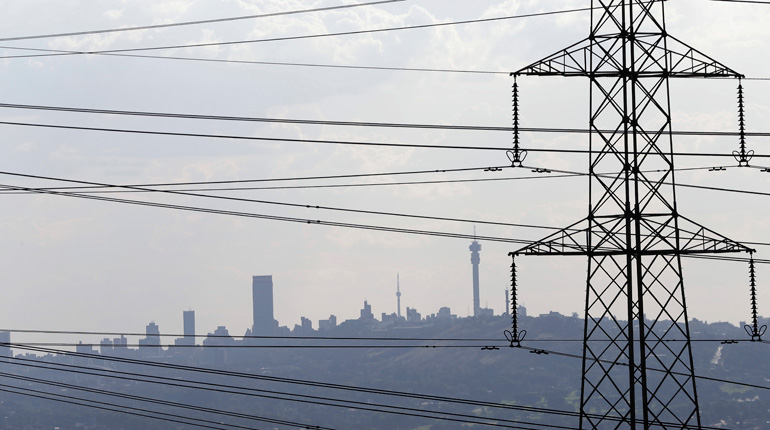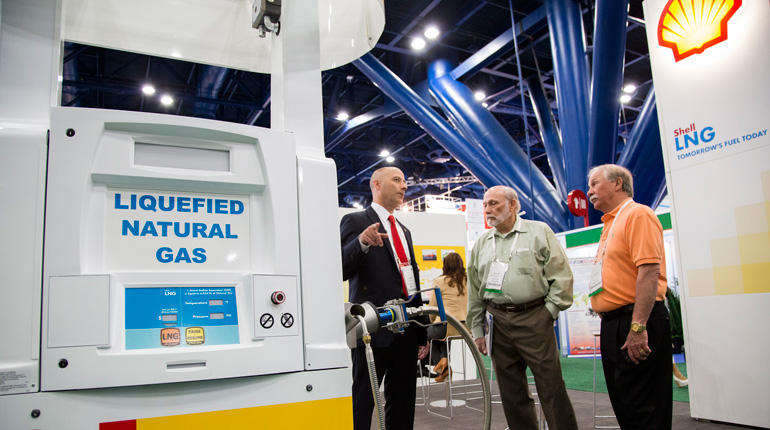 South African authorities are working on a 3.1 GW gas-to-power tender. (PA)
South African authorities are working on a 3.1 GW gas-to-power tender. (PA)
The South African authorities insist their gas-fired independent power project (IPP) tender remains on schedule, but industry analysts are not convinced.
Speaking to Interfax Natural Gas Daily on the sidelines of the Southern Africa Energy and Infrastructure Summit in Maputo, Karen Breytenbach, head of South Africa’s IPP unit, said her team was still on track to release the request for qualifications for the tender in the second quarter of the financial year.
However, Breytenbach conceded the IPP unit was in uncharted territory regarding the scale of the 3.1 GW gas-to-power tender, despite having successfully closed several rounds of its renewables IPP programme.
"The gas-to-power programme is unfolding in front of us, and we keep on seeing new pieces [of the puzzle] and we’re not necessarily sure where that little piece fits. We are not experts. We are really in our baby shoes right now as far as gas-to-power is concerned and we are learning," Breytenbach told delegates on Thursday.
Other industry analysts, speaking on condition of anonymity, said Breytenbach’s timetable looks ambitious, especially as the basic outline of how the tender will be structured and how bids will be assessed still needs to be decided.
Gas will be supplied as LNG under the programme. Three suitable ports have been identified for LNG imports – Richards Bay, Saldanha Bay and Coega Bay – and the IPP unit is running technical studies to determine how much capacity should be allocated to each port and whether an onshore terminal or FSRU should be used.
All power projects, whether offshore or onshore, "will be bundled", Breytenbach told Interfax Natural Gas Daily. However, running a bundled tender would require either updating South Africa’s energy and port legislation or securing exceptions for each project from multiple government regulators – something that would likely be a long and laborious process.
Under the National Ports Act and the Petroleum Pipelines Act, state-owned logistics and pipeline operator Transnet is authorised to own and operate all port and pipeline infrastructure in South Africa. It should also grant open access to that infrastructure except under exceptional circumstances. Similarly, the Gas Act stipulates the regulator needs to allow third-party access to all gas infrastructure capacity not being used.
"In a fully bundled LNG-to-power project, a developer that spends huge sums of money building LNG, port and pipeline infrastructure will want to own and operate that infrastructure and want exclusive access," one adviser at the conference told Interfax Natural Gas Daily.
This contravenes current legislation, but the IPP unit, "could just get round that by letting Transnet own and operate the port infrastructure", the adviser said.
Transnet itself is unlikely to willingly relinquish its stake in the development of South Africa’s burgeoning gas import industry. Siyabonga Gama, Transnet’s chief executive, told press in April the company wants to diversify towards oil and gas logistics to reduce its reliance on mining exports following the drop in commodity prices and the slump in domestic mining.
However, Transnet is "not the procurer", Breytenbach said, so will not ultimately make the decision about how the tender is structured.
Interfax Natural Gas Daily asked Transnet to clarify its intended role in the LNG import process, but a company spokesperson would not address the question.
"Transnet has assessed LNG demand for power production, industrial and transport use. The company is engaging with relevant government stakeholders on infrastructure plans for the import of LNG," the spokesperson said.
Bid evaluation
The IPP unit is also still deciding the methodology that will be used to access the pricing mechanisms of different LNG sources under the new tender.
"Say I am teamed up with a Brent-linked LNG supplier and bid ZAR 1,000/GWh [$66.8/GWh] and [a different consortium] has teamed up with a Henry Hub players and also bids ZAR 1,000/GWh, how do you evaluate that?" Jonathan Hoffman, head of business development for Southern Africa at Globeleq, asked Breytenbach.
"I don’t know right now, to be honest, but that doesn’t mean in three months from now, I’m not going to have an answer. What we have to do is make sure we are fair and transparent with whoever is going to bid," said Breytenbach.
The intention of South Africa’s gas-fired IPP programme is not just to supply gas to feed new power stations, but to create a gas market for other downstream industries. Ultimately the country will need to move away from dependence on LNG imports.
"We don’t want to be forever and a day exposed to dollar-denominated gas fuel price. Therefore we need to get to a point where we have indigenous gas, or we can have a relationship with our neighbours which would make it much more palatable for gas in South Africa’s economy," said Breytenbach.
However, gas pipeline imports from Mozambique and commercial shale gas production in South Africa’s Karoo basin are at least a decade a way – if they are considered economic at all.







Talk to us
Natural Gas Daily welcomes your comments. Email us at [email protected].